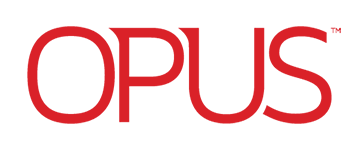Opus’ recent move to new offices in Reigate coincided with the celebration of its 25th birthday in early 2017. We spoke to founder and managing director Michael O’Donnell to find out the reasons for the move, how Opus has grown and the challenges the future holds.
What prompted Opus’ move to new offices in Reigate?
We are growing and changing as a business, and our current working environment represents our past rather than our future. I wanted an office that was fitting and appropriate for both our clients and our staff. I think the new office will help us hold on to the staff we have and develop them, and will help bring in the new staff we need for the clients we are attracting.
Also, I think for many people the social element and the work element is becoming more entwined. Once we decided to move we thought about the social element of the office and what part would it play in the morale of the staff and that came high up on the wish list. The office is in the town centre and when people finish work we are two minutes from bars and restaurants.
Describe how the business has changed since you started 25 years ago?
When I first started we had analogue lines and we’d strap a box to the wall, run some cable, put some sockets and phones in and that was it. Then we moved to voicemail and that became what seemed at the time as slightly challenging, but now everything has changed. We’ve had to set up our own IT company ( Opus Technology) because the voice and the IT were separate but now they’re on the same landscape. We have to understand that and take charge of it so that we can deliver the products and services we supply.
What are the challenges that brings?
You’ve got to have a greater understanding of the IT element, so we can bring everything together and present it to our clients in a useable way. The products we are delivering now are more challenging and that’s good because it’s engaging for our staff to fulfil those needs. We have to be able to deliver a faster response for clients and a more complete answer for clients.
Many of our clients consider us a trusted partner and adviser, and as a result they even want us to put systems into their overseas offices. They’ve flown our engineers all over the world: the USA, South America, India, Europe, the Far East, Australia. When I started the business we very much focused on the area within the M25, so that’s a big change.
How does your new office in Reigate help your clients?
Up until a couple of years ago bringing all our services together wasn’t as critical as it is now. So having our network staff in Sevenoaks didn’t really have an impact on our project management team or our account managers in Wimbledon. But that was changing and we were starting to see points of pain by not being able to get people face to face quickly to discuss an issue as we can now.
We now have 9,500 square feet on one floor where everyone is visible. A lot of space has been given up to areas where people can sit and talk. We’ve got two video conferencing rooms; one that is available for the engineers and project managers and one for account managers. We have another three meeting / conference rooms and one that can be laid out as a training room.
The idea was to create an environment where people can do their job more effectively but the move has achieved more than that. Having a spacious kitchen and dining area has encouraged greater social interaction between departments, along with the monthly social events that we hold after work. As big as we are now, many of the staff comment that joining Opus is like joining a family and now more than ever, we are working as one team.
Opus celebrated 25 years early in 2017, tell us how you started the business
I had been working for a copier company for 10 years and I clashed with the managing director. We ended up parting company and I left. I had just moved into a new house, I had a mortgage and it took six months to find a job. The second company sold copiers, IT, vending machines and telephone systems. That didn’t work out and I was sacked. Strangely enough, I left the first job on my daughter’s birthday, 4th January, and I left the second job on 4th January a year later, so I decided to go out on my own.
I thought there was no future in copiers as a start up at the time, so I decided to sell telephone systems. My mentor and managing director of 10 years became my new partner and fellow director in our new venture. I had never sold a phone system and I didn’t really know how they worked so I went down to the big trade show in Brighton, the TMA. You had all the stands for Toshiba, Panasonic, BT, etc. telling you about their new products. So I went round to all the stands and decided what product I was going to sell, which was Panasonic. I found someone I could source the equipment from, worked out my route to market and then started banging on doors.
How were you able to grow as large as you are now?
A few reasons. I was struggling to gain traction but after about a year we managed to get a business development loan from the DTI. That gave us the finance to take on three account managers and a couple of engineers.
Another reason was our approach to service. When I joined my first copier company I was shown around the office and they introduced me to the other salesman and the secretaries, and then I was taken in to where the engineers were. The sales manager said this is all overhead. His view, and that of a lot of people, was that the service side wasn’t an asset to the business it was just an overhead, something you needed to live with.
My view was that if the service was done right it would become a major asset. So I worked very closely with the service manager.
Many of your staff have been with you for several years. What do you put that down to?
I’m not perfect and I don’t expect other people to be perfect and as long as there’s an honesty and graft then I can live with some things not being perfect.
A lot of our people have been with Opus 10, 15 years or more. People blossom here. We want to hold on to them and we want them to blossom even more. We’ve grown and grown and we have to get numbers on board but we have to make sure they are of a standard.
I was with a client the other day and he asked me about one of our engineers who had resolved a problem for his company. I explained that the engineer had started from school and trained here, so he joined back in the day when we were running cables and hanging basic systems on the wall. He had sorted out a problem a top-level Cloud engineer had been unable to resolve. The company had assumed the engineer was a sub-contractor but he wasn’t, he was one of ours.
What are the challenges Opus faces over the next few years?
Things change so quickly you’ve got to be nimble and able to adapt.
I think clients want to pay for applications as and when they use them, and they want more flexibility to switch things on and off. They don’t want to understand how it all works but they want us to sort things out for them.
A company like Microsoft won’t make things work for you, you have to fit into their products. One of the challenges for a company like us is that our clients want us to be able to take our products, put the people behind them and make it all seamless for them. A slogan I encourage our staff to get behind is ‘Do it right, first time, on time’. Sometimes that can be difficult but we are adding value by tailoring products and application for our clients and delivering technology with purpose.
Our goal is to remain the independent technology partner of choice for our clients.



